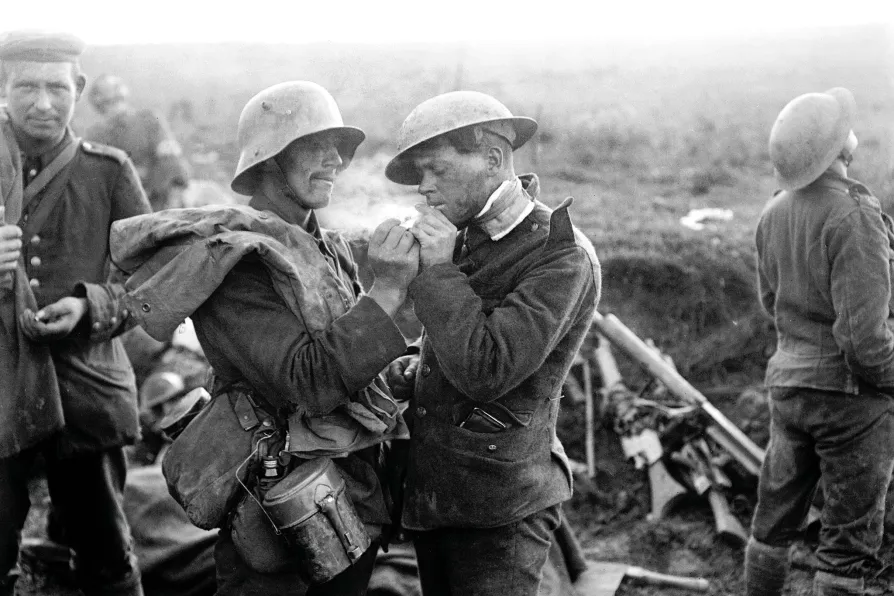RAMZY BAROUD offers six reasons why Netanyahu is prolonging conflict in the Middle East

 DEFIANCE: A World War I German infantryman lights a cigarette for a British soldier during the Christmas truce on the Western Front, 1914
[bswise/Creative Commmons]
DEFIANCE: A World War I German infantryman lights a cigarette for a British soldier during the Christmas truce on the Western Front, 1914
[bswise/Creative Commmons]
ON December 25 1914, British and German troops on the Western Front stopped firing at each other, put down their guns, climbed out of their trenches and met in no-man’s land. The bloody slaughter of World War I had been halted.
Thousands of men ignored the patriotic propaganda of their governments, shook hands, and embraced in friendship. They shared food and drink, showed each other photos of their families back home, and even played impromptu football matches together. “It is wicked that we should be shooting each other,” said William Eve, a rifleman in the Queen’s Westminsters regiment.
He wasn’t the only one who felt that way. The fraternisation between British and German troops was hailed by Lenin, then exiled in Switzerland, as a practical example of how to fight the imperialist war.

A WWI hero, renowned ornithologist, medical doctor, trade union organiser and founder member of the Communist Party of Great Britain all rolled in one. MAT COWARD tells the story of a life so improbable it was once dismissed as fiction

The obfuscation of Nazism’s capitalist roots has seen imperialism redeploy fascism again and again — from the killing fields of Guatemala to the war in Ukraine, writes PAWEL WARGAN

Communists lit the spark in the fight against Nazi German occupation, triggering organised sabotage and building bridges between political movements. Many paid with their lives, says Anders Hauch Fenger











